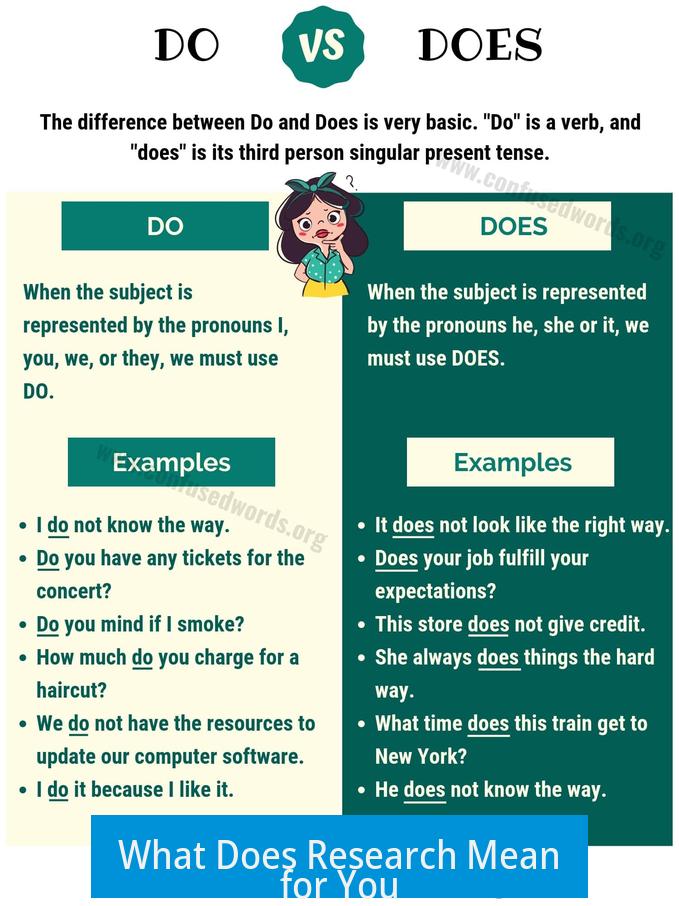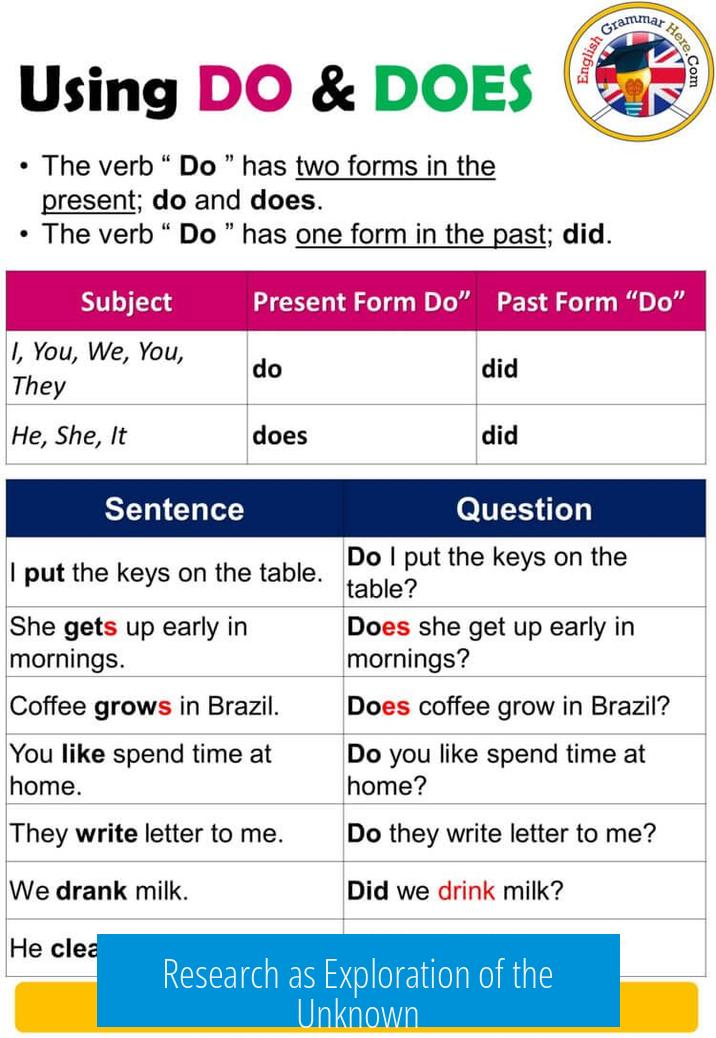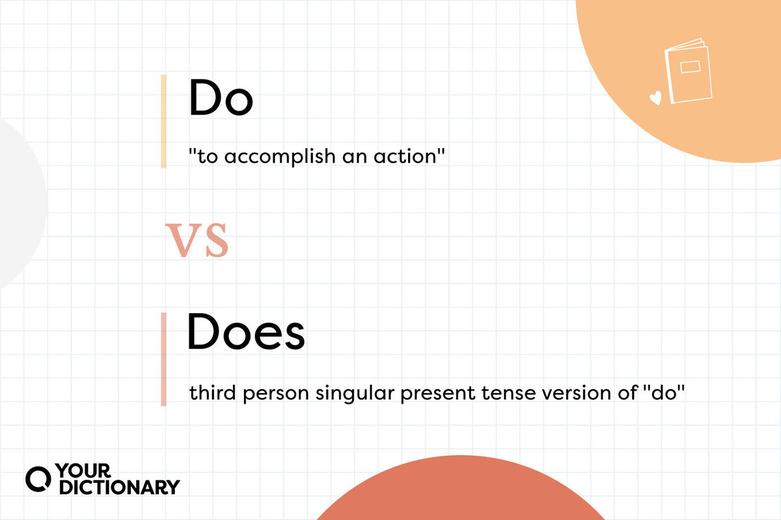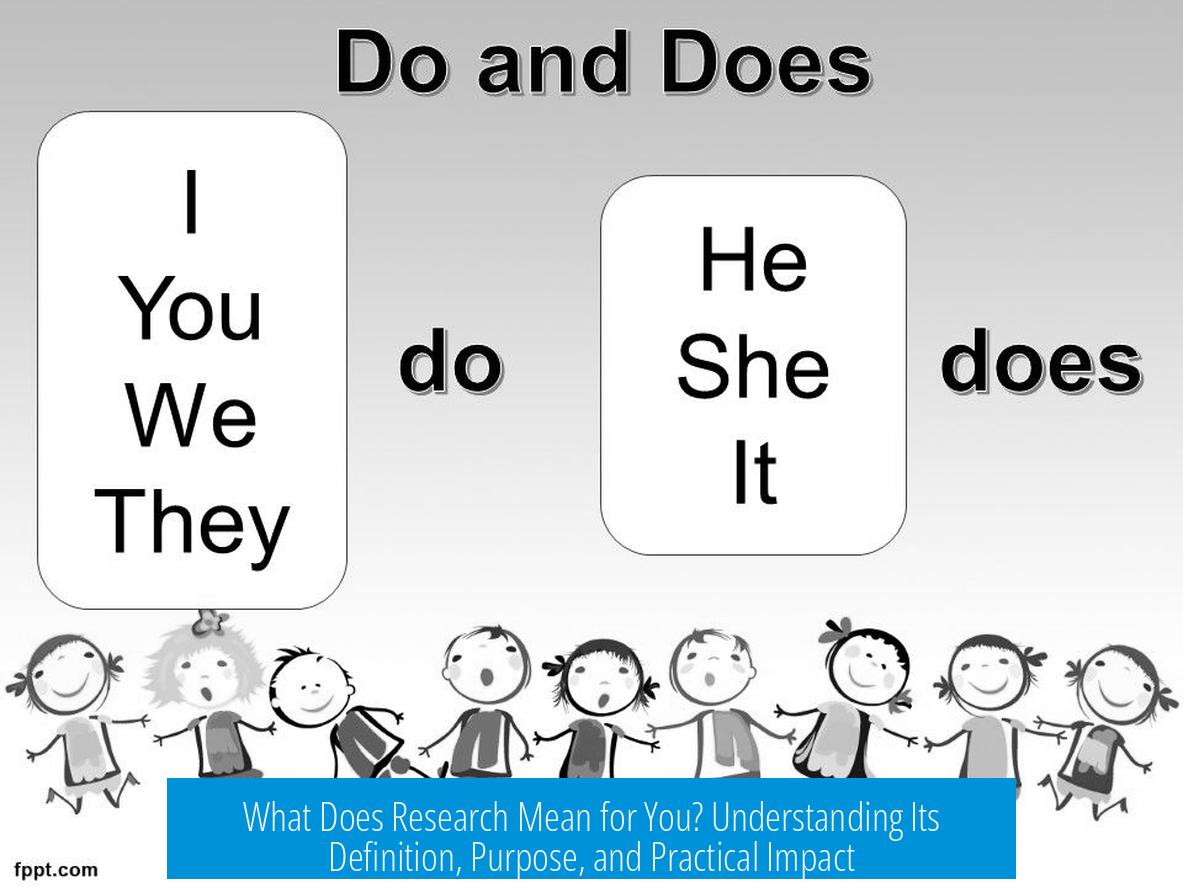What Does Research Mean for You?

Research means the creative and systematic pursuit of new knowledge and applications. It involves exploring unknown areas, applying existing knowledge to uncover facts, and often encountering challenges along the way. Fundamentally, research seeks to increase understanding in all fields, from science to culture.
Definition and Purpose of Research
Research, as defined by the National Science Foundation (NSF), involves creative and systematic work to expand knowledge about humans, culture, society, or scientific phenomena. It aims to develop new uses of what is already known. This process drives innovation and informs decision-making across disciplines.
Research as Exploration of the Unknown

Encountering Uncharted Knowledge
Research often centers on confronting the unknown. Long-term study eventually leads to uncharted topics—some avoided because of past failures, others untouched simply because no one has engaged them.
Probing Unexplored Knowledge

Good research means hovering around that gap in knowledge and probing it carefully. This curiosity-driven probing is about pushing boundaries. It applies beyond science, reflecting any human endeavor to discover something new.
Theoretical Perspective on Research
Theoretically, research applies known principles to unknown problems, extracting answers through careful experimentation and analysis. The aim is to transform uncertainty into clarity by using structured inquiry.
Practical Experience of Research

On the practical side, research can involve setbacks like failed experiments or overlooked details that ruin results. Despite difficulties, these challenges refine understanding and improve methods.
Key Takeaways
- Research systematically advances knowledge and practical applications.
- It involves exploring gaps in current understanding.
- Encountering unknown territories is central to the research process.
- Research blends theoretical insight with practical challenges.
- Persistence through failure is part of effective research.
What Does Research Mean for You? Exploring the Heart of Discovery and Knowledge

Research means diving headfirst into the unknown, using what we know to illuminate what we don’t, and occasionally discovering that the journey is as much about patience (and yes, frustration) as about breakthroughs. It’s a dynamic adventure, a blend of creativity, logic, curiosity, and sometimes the acceptance of failure.
But let’s break down what research really means and why it matters, both in theory and in practice.
The Definition and Purpose of Research: More Than Just Data
At its core, research is a creative and systematic effort. It aims to increase the stock of human knowledge—about everything from culture to science and society. It’s not just about collecting facts or repeating what’s been done. It’s about discovery and finding new ways to apply what we already know.
The National Science Foundation clearly states this: research and experimental development (R&D) are intentional endeavors to expand knowledge and create innovative applications. That’s a pretty broad but powerful mission.
Think about it: every major advancement we rely on today started as a question someone found curious enough to explore. Research fuels progress by taking yesterday’s facts and twisting, testing, and improving them.
Research as an Exploration of the Unknown
Now, here’s where things get really exciting. Imagine standing at the edge of a vast, dark cave. That cave is the unknown. Research is the flashlight you shine inside, hoping to discover new paths.
Here’s a striking idea: after studying a topic for a while, you’ll eventually stumble upon a space where no one has written a word. Why? Either someone tried and failed miserably, or nobody dared to enter before. Both possibilities carry a certain thrill—and weight.
To me, that moment—the encounter with uncharted territory—is where real research happens. Hovering cautiously in that “void,” probing with questions and experiments, is the essence of inquiry—not just in science but in any human endeavor. Whether you are an artist, a historian, or an engineer, that hesitation and curiosity define research.
Applying Theory: Squeezing Answers from the Unknown
The theoretical side of research is all about using what we already know to pry open the secrets of what we don’t. It’s a bit like a detective using clues to piece together a puzzle. The difference? The puzzle might reshape itself along the way. Theories offer frameworks to interpret data and generate hypotheses.
Think of it as intellectual legwork: you don’t start from zero. Instead, you build on existing ideas, testing them, questioning their limits. This process helps “squeeze answers” out of the unknown, sometimes revealing surprising connections or solutions.
Research in Practice: Expect Some Pain and Suffering
But don’t get romantic just yet. Research is tough. It tests patience and resilience. In the trenches, it often feels less like elegant theory and more like chaos—especially when projects fail.
Take this brutally honest reality: one tiny forgotten detail might turn a two-week experiment into a pile of worthless data. It’s frustrating, yes. But also a critical part of the learning curve. Every mistake refines the approach, sharpens questions, and builds better experiments next time.
Think of research like baking a cake where you can’t always trust the recipe—and you only realize mid-way you missed an ingredient. You either start over or figure out how to use what you have creatively.
Why Does All This Matter to You?
At this point, you might ask, “Okay, but what does this mean for me? Why should I care about research?”
Whether you’re a student, a professional, or simply someone curious about the world, research shapes the decisions we make every day. It’s the reason medical treatments improve, technology becomes smarter, and society evolves.
More importantly, understanding what research truly means can empower you. Recognizing it as a process of exploration—filled with both insights and hurdles—helps you embrace curiosity more fully. It’s not just academics’ work; it’s a skill you can apply everywhere.
Next time you encounter a challenging problem, big or small, ask yourself: “Where’s the unknown here? What do I know already, and how can I use that to explore the rest?” That’s research in action.
Tips to Embrace Research Like a Pro
- Stay Curious: The spark of research is curiosity. The moment you feel stuck, remind yourself that this is where discovery begins.
- Expect Setbacks: Don’t let frustration stop you. Failed attempts are stepping stones, not dead ends.
- Start Small: Begin with what you know and gradually probe deeper. This helps manage the unknown without feeling lost.
- Document Everything: Research thrives on details. Keeping precise notes saves you hours of repeating mistakes.
- Collaborate: Sharing questions and ideas broadens perspectives and uncovers blind spots.
Research: A Continuous Human Journey
Ultimately, research is about marching into the unknown armed with knowledge, skepticism, and a bit of humor. You might get lost. You might hit dead ends. But you gain understanding—and that’s priceless.
So, what does research mean for you? It’s your personal mission to explore mysteries around you, armed with existing wisdom and a spirit ready to probe deeper. The world’s waiting for you to shine your flashlight into its dark corners.





Leave a Comment